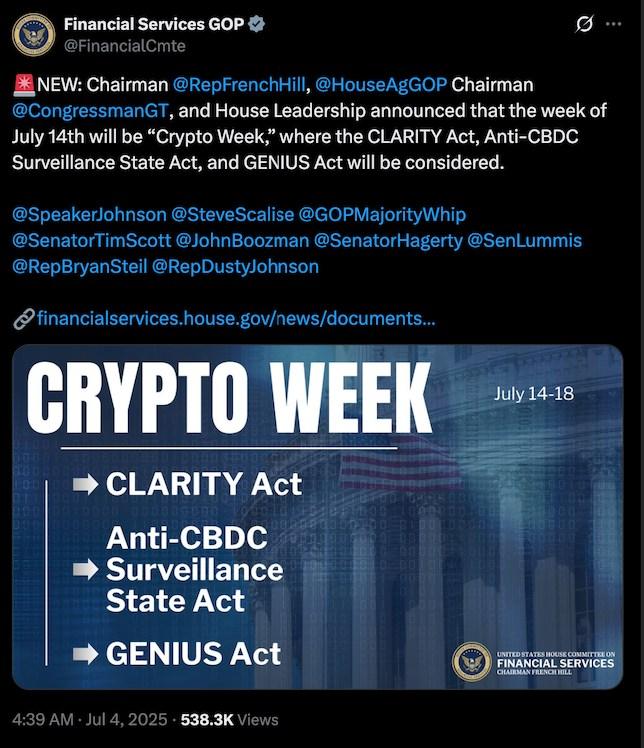Compiled by: Felix, PANews
As major companies intensify efforts to introduce tokenized stocks into the U.S. market, SEC Republican Commissioner Hester Peirce clearly stated in a statement on July 9th: While blockchain technology is powerful, it does not possess the magical ability to change the nature of underlying assets. Tokenized securities are securities themselves and must comply with federal securities laws.
Additionally, Hester Peirce emphasized in her statement that tokenized stocks, notes, or equities "remain securities" and require issuers, intermediaries, and traders to adhere to existing federal laws when creating, selling, or transferring these securities.
Hester Peirce's statement noted that tokenization can be done in two ways: issuers can mint a blockchain version of their own stocks, or custodians can wrap third-party securities and issue receipts.
"Sometimes, issuers will tokenize their own securities. For example, an operating company or investment company might tokenize its stock. Or, an unaffiliated third-party custodian of securities issued by another entity might issue new tokenized securities linked to the securities it holds, or tokenize the 'securities interest' held by investors against the custodian."
Hester Peirce warned that the second model introduces counterparty risk, as token holders depend on the custodian's solvency and control over the underlying stock.
Hester Peirce also pointed out that distributors of tokenized securities must consider their disclosure obligations under federal securities laws, referencing a recent staff statement from the SEC's Division of Corporation Finance on this topic. Moreover, market participants should meet with the Commission and its staff early when constructing their tokenized products.
"Distributors, purchasers, and traders of tokenized securities should also consider the nature of these securities and their impact on securities laws. For example, depending on the circumstances, tokens could be 'securities receipts' that are themselves securities but different from the underlying securities held by the token distributor. Or, if tokens do not grant legal and beneficial ownership of the underlying securities, they could be 'securities-based swap transactions' that retail investors cannot trade over-the-counter. While blockchain-based tokenization is emerging, the process of issuing instruments representing securities is not new. Both on-chain and off-chain versions of these instruments are subject to the same legal requirements."
Regarding this statement, ConsenSys lawyer Bill Hughes summarized on X platform, "In short: We've heard some crazy stories about your plans to launch tokenized U.S. stocks, and you need to seriously pump the brakes. Meet with us to discuss whether an exemption or rule modification might be necessary. But don't misunderstand, securities laws apply equally on-chain and off-chain."
Bloomberg ETF analyst James Seyffart commented on X platform that Hester Peirce's clarification sounds like a warning to all companies and protocols planning to build securities tokenization bridges, somewhat like "Hey, be careful."
It's worth noting that crypto companies including Coinbase and Kraken have already shown interest in launching tokenized stocks. If approved by the SEC, they would be able to offer blockchain-based traditional stock trading, directly competing with more traditional financial brokerage firms.
SEC Chairman and Republican Paul Atkins, when asked about the prospects of securities tokenization in a recent CNBC interview, stated that the agency should encourage innovation.
However, critics argue that this new technology might become a means to circumvent SEC regulation and expose retail investors to new risks.
Senator Elizabeth Warren stated that an upcoming House vote on a cryptocurrency market structure bill, the CLARITY Act, includes "provisions allowing non-crypto companies to tokenize their assets to evade U.S. SEC oversight." "According to the House bill, listed companies like Meta or Tesla could easily escape U.S. SEC regulation by simply deciding to put their stocks on the blockchain."
Related Reading: Tokenized Stocks Become Crypto's New Favorite, What About Altcoins?








